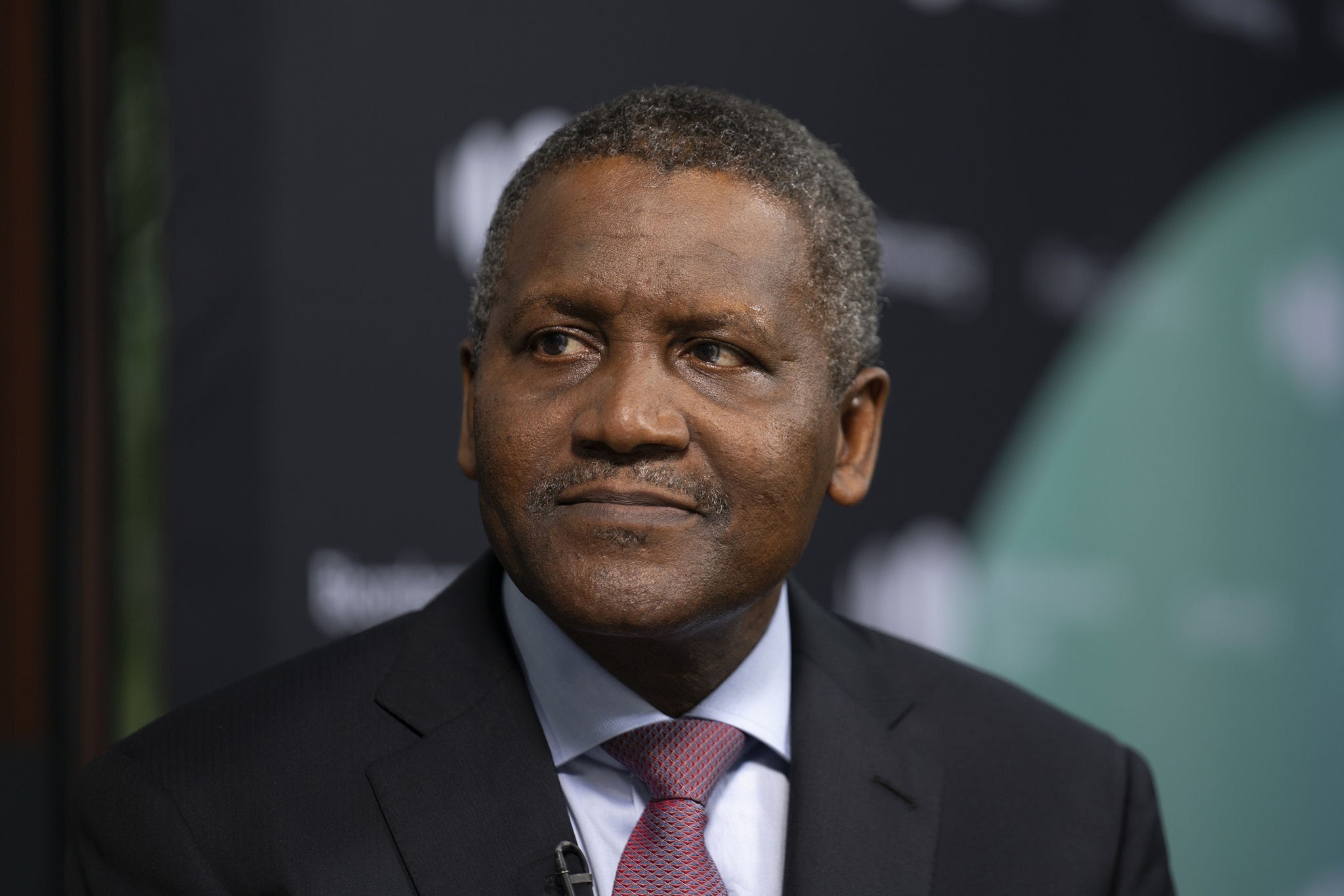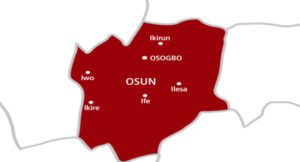


Aliko Dangote’s noble quest for Africa’s self-sufficiency and prosperity
By Abiodun Alade
Africa is a resource-rich continent but relatively poor in terms of manufacturing goods. According to the 2023 African Trade Report by the African Export-Import Bank (Afreximbank), the 54 countries of Africa combined accounted for only about 2.9 percent of global trade in 2022, slightly up from 2.7 percent in 2021. This figure drops to 0.8 percent when only manufactured goods are considered. Despite growing by 20.9 percent to reach $1.43 trillion in 2022, Africa’s total merchandise trade remains marginal.
In 2023, China’s total trade with Africa experienced a modest 1.5 percent growth, reaching $282.1 billion, according to a report by Diplo, an international non-profit organisation. It noted further that the trade deficit for Africa with China expanded, as Chinese exports to the continent increased by 7.5 percent to $173 billion, while imports from Africa decreased by 6.7 percent to $109 billion.
With a burgeoning population, abundant resources, and an increasingly dynamic entrepreneurial spirit, Africa holds immense potential for growth and prosperity. However, Africa’s potential remains largely untapped as the continent continues to export raw materials while importing finished goods.
As aptly put by the founder and CE of the Dangote Group, Aliko Dangote, at the recently held Africa CEO Forum in Kigali, Rwanda, the continent is indirectly importing poverty while exporting jobs.
Dangote is one African whose unwavering commitment to Africa’s advancement is reshaping industries and driving self-sufficiency across the continent.
At the heart of Dangote’s vision lies the belief that Africa’s future prosperity hinges on its ability to harness its own resources and capabilities. This conviction is not mere rhetoric; it is backed by concrete actions and investments totalling over $25 billion in the past seven years alone, as he revealed during the Africa CEO Forum.
“The future is Africa. We have whatever it takes to make Africa great. And that is why I’m not only putting in my own money, but I’m also putting my soul and life in Africa to make Africa great. Like what I keep saying, nothing is impossible in Africa. In the last seven years, we have invested more than $25 billion in terms of making Africa self-sufficient in fertiliser, in petrochemicals, in refined products, and also continue with the expansion of our cement business,” he said.
Central to Dangote’s transformative agenda is the development of critical infrastructure, particularly in the energy sector. His company’s landmark achievement, the completion of Africa’s largest petroleum refinery, marks a significant milestone in the continent’s quest for self-reliance. With a refining capacity of 650,000 barrels per day, the refinery is poised to reduce Africa’s dependence on imported petroleum products and create a robust ecosystem for downstream industries in a major boost to the economies of Nigeria and the continent.
By harnessing Africa’s abundant crude oil resources to produce refined products locally, Dangote aims to catalyse a virtuous cycle of industrial development, job creation, and economic prosperity.
The refinery’s strategic significance extends beyond Nigeria’s borders, as it aims to supply refined products to neighbouring countries in West, Central, and South Africa. This ambitious endeavour not only addresses the continent’s energy needs but also catalyses regional integration and economic cooperation – a testament to Dangote’s vision of Africa as a united and self-reliant entity.
“Our refinery is quite big. It is something that we believe Africa needs because we asked ourselves, do we really refine the oil we consume? Do we really refine the oil we produce? The answer is no. You look at the entire continent, there are only two countries that don’t import petroleum products, which is a tragedy. Only Algeria and Libya, while the rest are all importers. So, we need to really change it by making sure that we don’t just produce raw material. We should produce finished products and create jobs. One of the things that we need to know as Africans is that yes, we produce raw materials, then export them. When you export raw materials, and somebody now keeps importing things into your continent and dumping goods; you are importing poverty while exporting jobs. So, we must change the narrative,” he added.
Beyond petroleum refining, Dangote’s vision for self-sufficiency is the cultivation of indigenous capabilities across critical sectors, including the production of essential petrochemicals such as polypropylene, polyethylene, base oil, and linear alkylbenzenes.
Dangote’s foray into the production of base oil – a crucial component of lubricants and engine oils – underscores his commitment to fostering self-sufficiency and reducing Africa’s dependency on imported petroleum products. By investing in state-of-the-art facilities and leveraging cutting-edge technologies, Dangote is poised to transform Africa’s lubricant industry, providing a reliable source of high-quality base oil to meet the continent’s growing needs.
Moreover, Dangote’s ventures into linear alkylbenzenes – a key ingredient in the production of detergents – highlight his holistic approach to industrial development and sustainability. By producing linear alkylbenzenes locally, Dangote not only supports the growth of Africa’s detergent industry but also reduces the continent’s reliance on imported raw materials, thus enhancing its economic resilience and self-reliance.
His investments in fertiliser production, for instance, seek to address Africa’s chronic dependency on imported fertilisers – a vulnerability that undermines food security and agricultural productivity. Through strategic partnerships and innovative technologies, Dangote is working to localise fertiliser production, thereby empowering African farmers and reducing the continent’s reliance on foreign inputs.
Speaking on the significance of his investments, Dangote noted, “We have enough gasoline to give to at least the entire West Africa, we have enough diesel to give to West Africa and Central Africa. We have enough aviation fuel to give to the entire continent and export some to Brazil and Mexico.
“What we’re doing as an African company and we’re proudly African is to see how we can make Africa self-sufficient not only in petroleum products. Today, our polypropylene and polyethylene will meet the demand of Africa.
“Today, we’re doing base oil, which is to do like engine oil. We’re doing linear alkylbenzenes which is raw material to produce detergent. Africa has a population of 1.4 billion people, but nobody is producing that in Africa. So, we import the raw material for all our detergents. We’re producing the raw material to make Africa self-sufficient. And as I said, give us three or four years, Africa will not import any more fertiliser from anywhere,” he said.
By leveraging Africa’s abundant natural resources and harnessing the ingenuity of its peoples, Dangote is pioneering a new paradigm of economic development – one rooted in self-reliance, innovation, and inclusive growth.
However, Dangote’s quest for self-sufficiency is not without its challenges. From logistical constraints to regulatory complexities, the journey towards economic autonomy is fraught with obstacles that require perseverance, resilience, and creative problem-solving. Yet, his unwavering resolve, remarkable fortitude, and entrepreneurial spirit have enabled him to surmount these hurdles, transforming adversity into opportunity and paving the way for Africa’s renaissance.
In adherence to his avowed commitment to an empowered Africa, Dangote is laying a historic foundation for Africa’s self-sufficiency and economic empowerment through bold investments, strategic partnerships, and a relentless pursuit of excellence.
By producing value-added products locally, Dangote aims to reverse the narrative of Africa exporting raw materials and importing finished goods – a paradigm shift that promises to create jobs, empower millions of Africans, and alleviate poverty across the continent.



